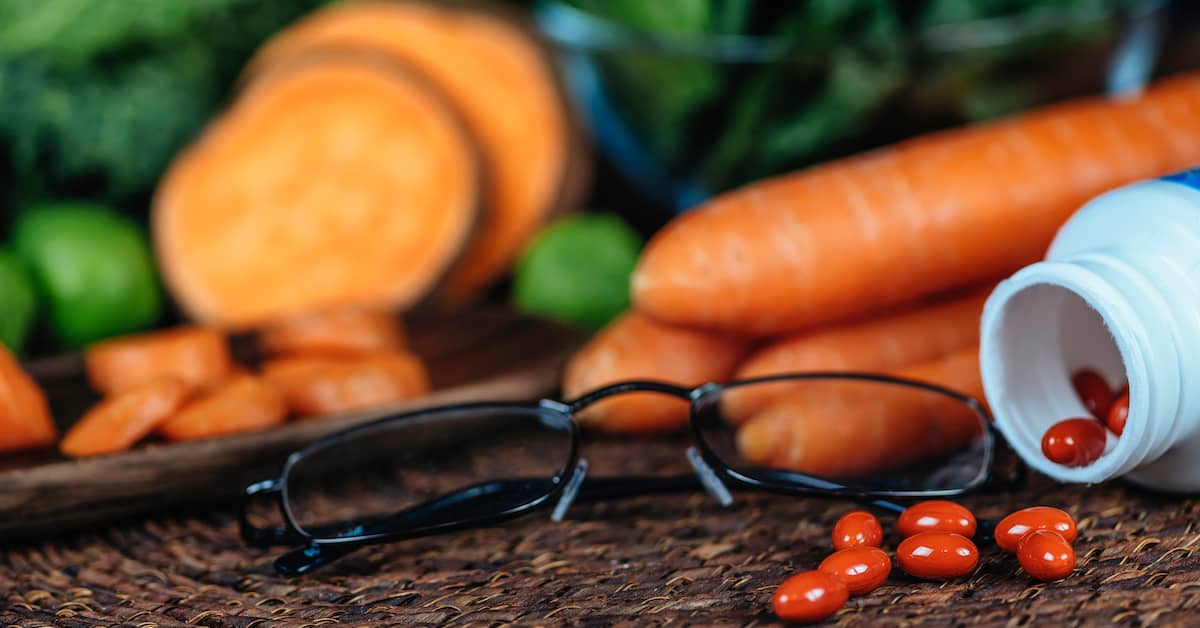
Keeping Your Brain At The Top Of Its Game
The brain is a main destination for the lutein we consume. Researchers report that lutein is the main carotenoid that makes its way into brain tissue to keep neurons functioning properly at all ages. Or – as scientists at Duke, Tufts and the University of Georgia put it – "across the lifespan."1 And a study at Tufts that examined the benefits of eating lutein-rich avocados for middle-aged folks and seniors bears this out. In this investigation, researchers had 40 people over the age of 50 eating one avocado a day for six months. (They had not been eating this food previously.) After six months, the scientists found that the lutein levels in these folks had climbed while their problem-solving skills and working memory also improved significantly. Plus, the amount of lutein in their eyes doubled.2 Corroborating these results, a study at the University of Georgia shows that daily supplements of lutein produce “significant improvements in spatial memory, reasoning ability and complex attention.” The supplements in this study contained ten mg of lutein and two mg of zeaxanthin.3 Researchers revealed a similar finding in an Australian study that gave people aged 40 to 75 supplements that contained those same amounts of lutein and zeaxanthin. These researchers report that the people taking supplements generally improved their visual memory and visual learning abilities.4 And when it comes to saving your vision, lutein is one of the most powerful antioxidants around.Can Cross the Blood-Retina Barrier
Lutein and its twin nutrient zeaxanthin are the only carotenoids that can cross the blood-retina barrier that keeps many substances out of ocular tissue. By the way, zeaxanthin is also called lutein’s isomer. An isomer is an identical compound consisting of the same chemical elements as another substance, but which has a different atomic arrangement. Once lutein enters the eyes, it’s used to create your eye color and defend the eyes against long-term problems that are linked to aging – conditions which include age-related macular degeneration (a leading cause of blindness) as well as cataracts.5 Studies show that because lutein, along with zeaxanthin, are such effective antioxidants, they are transported into the areas of the retina that produce a near constant stream of oxidative radicals from retinal cells busy with the functions that make vision possible. This is particularly important for a part of the retina called the fovea which is crucial for high definition vision. The fovea is vulnerable to oxidative stress because it’s constantly bombarded by potentially destructive light energy. But lutein provides all-around protection against damage from the cascade of light that enters the eyes.6My Takeaway
If you want to boost your lutein levels, plenty of supplements are available and I encourage taking one of them. I believe lutein is so important that our sister company, Green Valley Natural Solutions, developed its own lutein supplement called Eye Vitality Plus. It’s also a good idea to eat lutein-rich food. Along with avocados, foods high in lutein include dark, green, leafy vegetables; summer squash; broccoli; carrots; lettuce; kale; peas; eggs; and bell peppers. In fact, spinach smoothies are a great source of easily-absorbed lutein.7- https://pubmed.ncbi.nlm.nih.gov/31321376/
- https://www.mdpi.com/2072-6643/9/9/919
- https://www.ncbi.nlm.nih.gov/pmc/articles/PMC5707718/
- https://pubmed.ncbi.nlm.nih.gov/35252311/
- https://pubmed.ncbi.nlm.nih.gov/18285296/
- https://pubmed.ncbi.nlm.nih.gov/6724836/
- https://www.sciencedirect.com/science/article/abs/pii/S0308814618319617?via%3Dihub
